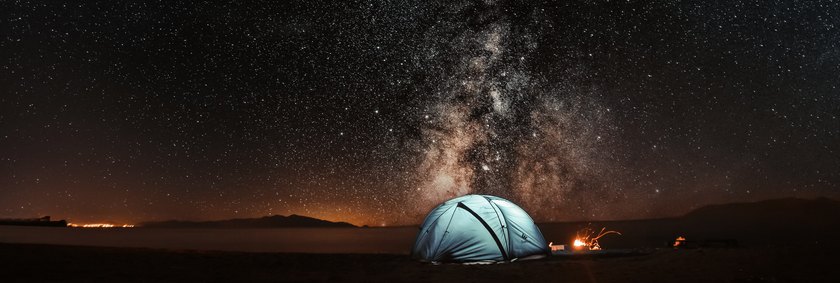Camping can be a fun and rewarding experience, but it's essential to stay safe while you're doing it. If you're camping in a new location, there are some things you need to keep in mind. This blog post will discuss staying safe when camping in a new location. We'll cover topics like safety precautions, food and water safety, and staying aware of your surroundings. So if you're planning on camping in a new spot, make sure to read this post!
How To Stay Safe When Camping In A New Location
It's always an adventure when you go camping in a new location. There's always something new to see and explore. But it's essential to be prepared and take some safety precautions when venturing into unfamiliar territory. Here are a few tips to help you stay safe when camping in a new location:
#1. Be Sure to Research the Area Before You Go!
It's essential to do your research before you go camping in a new area. Be sure to check out the local regulations and restrictions regarding camping. You should also take some time to read up on the area's history, climate, and geography. This will help you be prepared for anything you may encounter while camping.
For example, if you plan to camp in a remote area, it's essential to know what kind of wildlife is in the area. This way, you can take the necessary precautions to avoid any dangerous encounters.
#2. Pack Essential Supplies!
Be sure to pack all of the essential supplies you'll need for your camping trip. This includes food, water, shelter, and first-aid supplies. It's also a good idea to pack extra supplies, just in case you run into any unforeseen problems while you're camping. For instance, if you're camping in an area that's known for having severe weather, it's essential to pack extra supplies like food and water. And if you're camping in a remote area, it's a good idea to bring along a satellite phone or two-way radio or wear a survival watch in case you need to call for help. If you’re planning to camp at night, you’ll need a decent HikMicro Thermal so that you can spot what you need to spot at night time. You want to be safe while you camp and while you might not necessarily plan a night hike, you might want to see the stars and keep any animals in your periphery at the same time!
#3. Know Your Limits!
It's essential to know your limits when camping in a new area. If you're not comfortable with doing something, don't do it. For example, if you're not comfortable hiking in an area with a lot of elevation change, don't do it.
It's also important to be aware of your physical limitations. If you have any medical conditions that could be exacerbated by camping, be sure to take the necessary precautions. For example, if you have asthma, be sure to pack your inhaler and take any other medications you may need.
#4. Tell Someone Where You're Going!
Before camping in a new area, be sure to tell someone where you're going. This way, if something happens and you don't return when you're supposed to, someone will know where to start looking for you. It's also a good idea to leave a detailed itinerary with someone you trust. This should include the route you're taking, where you're going to be camping, and when you plan on returning.
#5. Be Careful With Fire!
If you're using a campfire, take all the necessary precautions to prevent accidents. Be sure to build your fire in a safe area away from any flammable materials. Also, be sure to keep your fire under control at all times. Never leave your fire unattended, and make sure it's entirely out before you go to bed.
#6. Know About The Most Common Dangers of Camping in a New Location!
While many dangers are inherent in camping, some are more common than others, depending on the location. Therefore, it is important to research the area you will be camping in advance to be aware of any potential dangers and take steps to mitigate them. Some of the most common dangers of camping in a new location include the following:
- poorly marked trails: you may not be familiar with the trails when camping in a new location. This can lead to getting lost, which can be dangerous if you are unprepared. Be sure to take a map and compass with you, and know how to use them.
- dangerous wildlife: depending on the location, there may be dangerous wildlife present. This could include bears, mountain lions, snakes, and more. Be sure to research the area in advance to know what to expect and how to stay safe.
- extreme weather conditions: another common danger of camping in a new location is extreme weather conditions. This could include high winds, flash floods, thunderstorms, and more. Be sure to check the weather forecast and be prepared for whatever conditions you encounter.
Wrap Up: Tips To Stay Safe When Camping In A New Location
Even though camping in a new location is an adventure, there are some safety concerns you need to consider. By following the tips above, you can ensure that you and your family have a safe and enjoyable trip.
P.S.: If you're interested in a way of travelling and getting accommodation cheaply, you might wanna check out house sitting. Trustedhousesitters.com was kind enough to provide us and our readers with a 10% discount, feel free to click on the link to use it :)
















